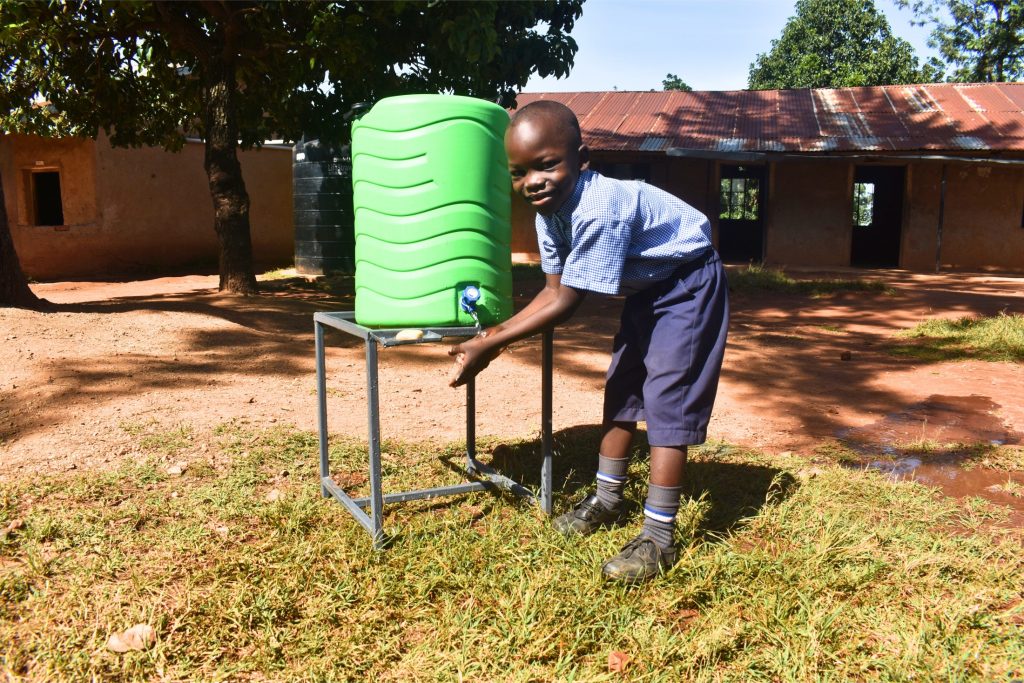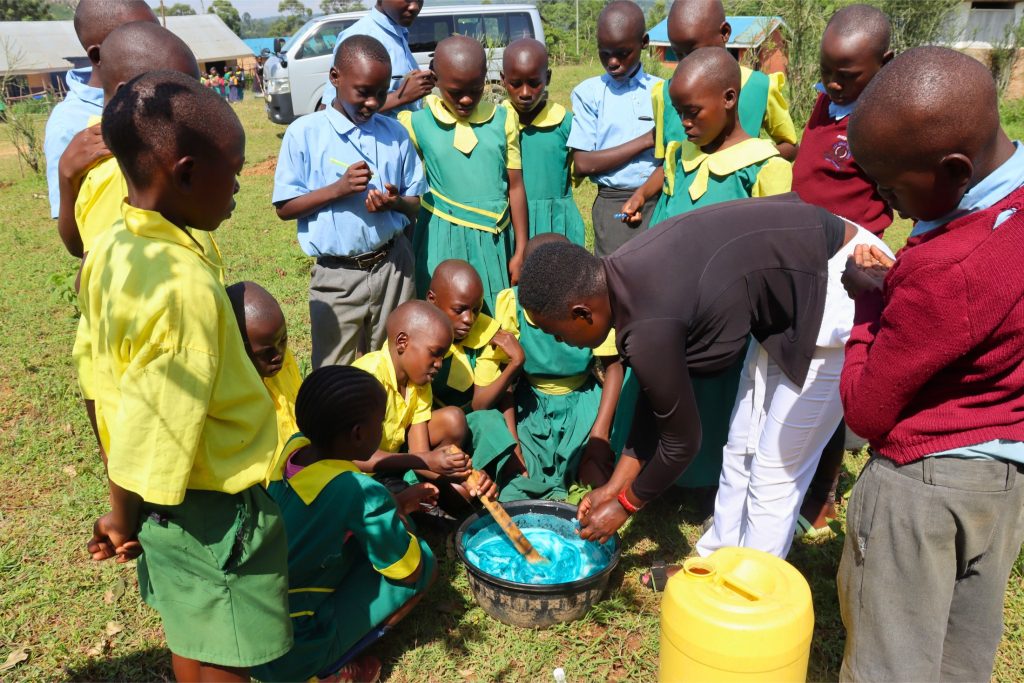Global Handwashing Day: Why Handwashing is More Important than Ever in a Post-COVID-19 World
Today, October 15th, is Global Handwashing Day.
During the Ebola outbreak in West Africa and Central Africa in 2014-2016, hand hygiene was one of the important methods for preventing the spread of the Ebola virus, and that has been true with COVID-19. Throughout the COVID pandemic, people worldwide were advised to adopt preventative methods to stop the spread of COVID-19 and reduce the risk of transmission in the communities—social distancing, hand hygiene, wearing a mask, etc. COVID highlighted the importance of access to clean water and sanitation as a means to prevent the spread of infections.
The integral role of hand hygiene has arguably never been so widely acknowledged. Studies in Indonesia, the US, and 14 other other countries indicated that there was a significant uptake in daily handwashing frequency during COVID-19. As the COVID-19 pandemic was happening around the world, hand sanitizer and handwashing stations became in-demand.
However, in many places around the world, especially in low- and middle- income countries, a preexisting lack of access to safe water, sanitation, and hygiene (WASH) resources makes handwashing impossible. In fact, one out of four people in the world do not have access to a basic handwashing facility at home.
The messaging around hand hygiene/handwashing as a prevention method against the spread of COVID was very effective, and it was one of the major gains acquired during the COVID-19 pandemic, with the installation of handwashing and sanitizer stations in schools, airports, shopping centers, restaurants, transit stations, and hospitals to slow the spread of COVID-19.
It has been over two years since we dealt with strict rules put in place to prevent the spread of COVID-19. In May 2023, the US and Japanese governments officially lifted the Public Health Emergency restrictions related to COVID-19. With the lifting of COVID-19 restrictions, one thing I have not heard consistently is officials encouraging communities to maintain the basic rule of hand hygiene to prevent the spread of other infectious diseases. With COVID-19 no longer a public health emergency, there is a risk for people and communities to become complacent about hand hygiene.
To avoid complacency in people and communities, we need to maintain communication, cost-effective handwashing methods, and keep the momentum gained during the COVID-19 peak in any kind of public message that reminds people and communities how important and fundamental hand hygiene and washing is. We also need to ensure that, where handwashing stations exist, they are regularly replenished with soap and water, and sanitizer containers are also refilled consistently. Where communities don’t have access to clean and safe water, we need to build infrastructure to make it easy for people to access clean water.

Maintaining the momentum gained during COVID-19 through public messages that reminded people and communities how fundamental hand hygiene is and making it easy for people to clean their hands is important. As The Water Project, we build water infrastructure in communities to make it easy for people to wash their hands and train communities and schools on soap making. Anything we can do to make hand hygiene part of our daily life will help reduce the risk of infection; it is fundamental to reducing the spread of infectious diseases now and in the future.

As we have already gone into the post-COVID world and the reality that inhabits it, we shouldn’t drop the hand-washing habits so many of us learned during the pandemic.
On this 2023 World Handwashing celebration, it is important for Water, Sanitation, and Hygiene (WaSH) organizations to continuously emphasize that handwashing with soap and water for at least 20 seconds, or using an alcohol-based hand sanitizer when soap and water are unavailable, is the first line of defense against the spread of infectious diseases, and handwashing is not an event but a lifestyle.
Yes, COVID-19 is no longer a worldwide public health emergency; however, other common infectious diseases such as typhoid, cholera, and diarrheal pathogens like rotavirus, E. coli, and Shigella are still affecting people every day in many countries across the globe. As we sit around the table in pursuit of learning together, let’s continue our work to ensure that people living in the communities we serve have access to clean water and hand-washing facilities.
Home More Like ThisTweet